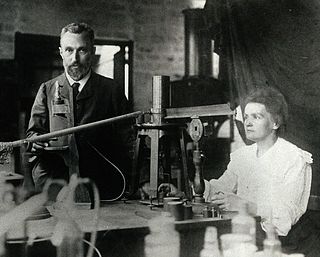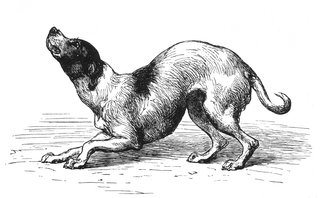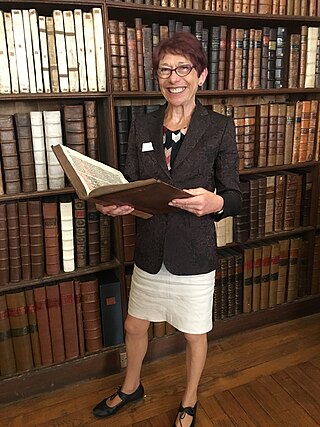Related Research Articles

Edward Osborne Wilson was an American biologist, naturalist, ecologist, and entomologist known for developing the field of sociobiology.

Francis Harry Compton Crick was an English molecular biologist, biophysicist, and neuroscientist. He, James Watson, Rosalind Franklin, and Maurice Wilkins played crucial roles in deciphering the helical structure of the DNA molecule.

James Dewey Watson is an American molecular biologist, geneticist, and zoologist. In 1953, he co-authored with Francis Crick the academic paper proposing the double helix structure of the DNA molecule. Watson, Crick and Maurice Wilkins were awarded the 1962 Nobel Prize in Physiology or Medicine "for their discoveries concerning the molecular structure of nucleic acids and its significance for information transfer in living material".

Science is a systematic discipline that builds and organises knowledge in the form of testable hypotheses and predictions about the world. Modern science is typically divided into two or three major branches: the natural sciences, which study the physical world; and the behavioural sciences, which study individuals and societies. The formal sciences, which study formal systems governed by axioms and rules, are sometimes described as being sciences as well; however, they are often regarded as a separate field because they rely on deductive reasoning instead of the scientific method or empirical evidence as their main methodology. Applied sciences are disciplines that use scientific knowledge for practical purposes, such as engineering and medicine.

A scientist is a person who researches to advance knowledge in an area of the natural sciences.

Max Ferdinand Perutz was an Austrian-born British molecular biologist, who shared the 1962 Nobel Prize for Chemistry with John Kendrew, for their studies of the structures of haemoglobin and myoglobin. He went on to win the Royal Medal of the Royal Society in 1971 and the Copley Medal in 1979. At Cambridge he founded and chaired (1962–79) The MRC Laboratory of Molecular Biology (LMB), fourteen of whose scientists have won Nobel Prizes.

The Double Helix: A Personal Account of the Discovery of the Structure of DNA is an autobiographical account of the discovery of the double helix structure of DNA written by James D. Watson and published in 1968. It has earned both critical and public praise, along with continuing controversy about credit for the Nobel award and attitudes towards female scientists at the time of the discovery.

Daniel J. Kevles is an American historian of science best known for his books on American physics and eugenics and for a wide-ranging body of scholarship on science and technology in modern societies. He is Stanley Woodward Professor of History, Emeritus at Yale University and J. O. and Juliette Koepfli Professor of the Humanities, Emeritus at the California Institute of Technology.

Rhetoric of science is a body of scholarly literature exploring the notion that the practice of science is a rhetorical activity. It emerged after a number of similarly oriented topics of research and discussion during the late 20th century, including the sociology of scientific knowledge, history of science, and philosophy of science, but it is practiced most typically by rhetoricians in academic departments of English, speech, and communication.
Helen Verran is an Australian historian and empirical philosopher of science, primarily working in the Social Studies of Science and Technology (STS), and currently adjunct professor at Charles Darwin University.

Anecdotal cognitivism is a method of research using anecdotal, and anthropomorphic evidence through the observation of animal behaviour.
W. Patrick McCray is a historian at the University of California, Santa Barbara. He researches, writes about, and teaches the history of science and the history of technology.
Martin John Spencer Rudwick is a British geologist, historian, and academic. Rudwick is an emeritus professor of History at the University of California, San Diego and an affiliated research scholar at Cambridge University's Department of History and Philosophy of Science. His principal field of study is the history of the earth sciences; his work has been described as the "definitive histories of the pre-Darwinian earth sciences". Rudwick was an early scholar to critique the conflict thesis regarding religion and science.
The Pfizer Award is awarded annually by the History of Science Society "in recognition of an outstanding book dealing with the history of science"
The concept of multiple discovery is the hypothesis that most scientific discoveries and inventions are made independently and more or less simultaneously by multiple scientists and inventors. The concept of multiple discovery opposes a traditional view—the "heroic theory" of invention and discovery. Multiple discovery is analogous to convergent evolution in biological evolution.

Mary Adelia Davis Treat was a naturalist and correspondent of Charles Darwin. Treat's contributions to both botany and entomology were extensive—six species of plants and animals were named after her, including an amaryllis, Zephyranthes treatae, an oak gall wasp Bellonocnema treatae and three ant species Aphaenogaster mariae, Aphaenogaster treatae, and Dolichoderus mariae.

Patricia Fara is a college lecturer in the history of science at Clare College, Cambridge. She is a graduate of the University of Oxford and did her PhD at the University of London. She is a former Fellow of Darwin College and is an Emerita Fellow of Clare College where she was previously Director of Studies in the History and Philosophy and Science. Fara was also a College Teaching Officer in the Department of History and Philosophy of Science. From 2016 to 2018 Fara was President of the British Society for the History of Science. In 2016 she became President of the Antiquarian Horological Society. Fara is author of numerous popular books on the history of science and has been a guest on BBC Radio 4's science and history discussion series, In Our Time.

Romanticism was an intellectual movement that arose in the late eighteenth century and continued through the nineteenth century. The movement had roots in the arts, literature, and science. Largely conceived as a reaction towards the extreme rationalism of the Enlightenment, it championed expressing emotions through aesthetic and emphasizing the transcendent allure of the natural world.
Jacob Darwin Hamblin is an American professor of history, specializing in international aspects of science, technology, and the global environment. His 2013 book Arming Mother Nature: The Birth of Catastrophic Environmentalism won two prestigious awards: the 2014 Paul Birdsall Prize and the 2016 Watson Davis and Helen Miles Davis Prize.

Arming Mother Nature is a 2013 non-fiction book by Jacob Darwin Hamblin, a history professor at Oregon State University. His book argues that The Pentagon and its military planning for WW III promoted "catastrophic environmentalism" by funding environmental science in the Cold War after WW II. The Pentagon planners were interested in the various ways in which natural processes could be harnessed to kill millions of people and/or destroy the agricultural, or other, sectors of the economies of enemy nations.